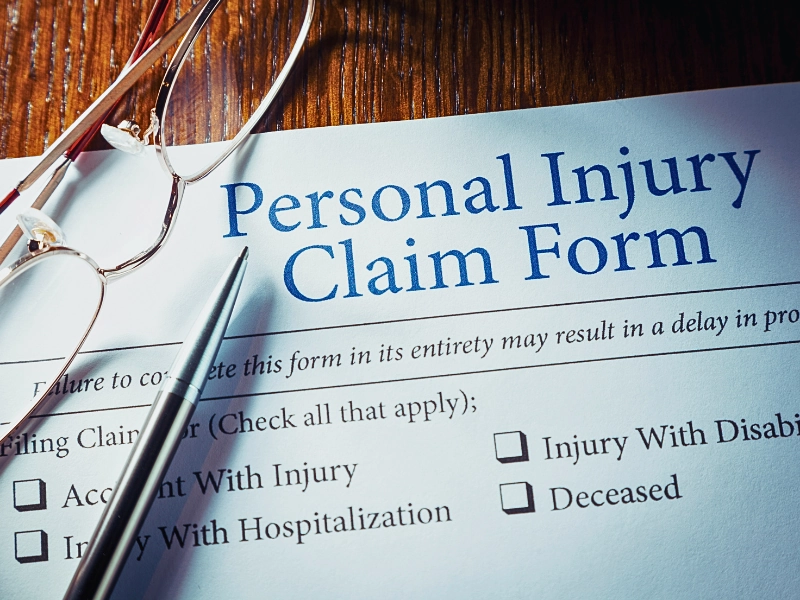Several factors determine when to file a personal injury claim in Kentucky, the statute of limitations being a major one. Kentucky generally gives people injured in the state one year from the date of the injury. This is a marked difference from the two-year statute of limitations in many other states.

Personal injury attorneys can evaluate your case and recommend next steps. Call Young, Reverman & Bolotin at 513-400-0000.
Table of Contents
Understanding Kentucky’s Statute of Limitations for Personal Injury Claims
How long to file a personal injury claim varies by state. Kentucky law typically gives one year to start legal action. This timeline is shorter than many other states’ timelines. In that one year, injured people may have to deal with the emotional strain of the injury, attempts to recover, negotiations with insurance companies, and considerations of a lawsuit if negotiations are not successful.
Some exceptions to the one-year rule do apply, making it worthwhile to consult with a personal injury attorney, even if the statute of limitations apparently has passed. Here are common ones:
- Some injuries have delayed symptoms and could lead to the discovery rule applying. In these situations, the one year begins with the diagnosis of the injury, not the date of the accident. Overlooked injuries after a motor vehicle accident include traumatic brain injury, in which signs can take several months to manifest.
- Minors may be able to wait until they are 18 (legal adults in Kentucky) to file. However, someone may need to file on the minor’s behalf within a certain time limit in some situations.
- The involvement of government entities in a case can lead to even shorter timeline requirements.
- If the person who is at fault flees Kentucky or tries to hide his or her identity, this can pause the statute of limitations. Hit-and-run accidents are a common scenario for this.
- Overlapping claims can mean different timeframes or extensions in a few situations, such as in product liability or wrongful death.
Signs It’s Time to File a Personal Injury Claim in Kentucky
How do you know when to file a personal injury claim with an insurance company, much less a lawsuit in court?
Catastrophic Injury
Some injuries can be more life-altering than others, leading to steep medical expenses, long-term care, and lost income. Major financial resources are necessary for catastrophic injuries, and insurance companies may try to undervalue claims. Lawsuits can help maximize compensation for recovery.
Financial Strain
Minor and moderate injuries can cause financial stresses. In Kentucky, the median yearly income is $62,417. However, even a person making an income like this might be ill-equipped to deal with personal injuries, depending on insurance and how many years the injury persists, among other factors. Financial strain is possible with any type of personal injury, including car accident, slip-and-fall, dog bite, medical malpractice, and workplace.
Injuries Caused by a Dog
Dog bites and other types of injuries, including those inflicted by an unleashed and ungated dog, can be severe. Even minor dog bites can leave lifelong physical repercussions and emotional scars.
Refusal to Accept Responsibility
In many personal injury cases, the responsible party or parties do not accept responsibility. An insurance claim or a lawsuit may be necessary for you to get compensation.
Third-Party Workplace Claims
Workers’ compensation can assist with medical expenses and wage replacement but does not help with pain and suffering. Third parties, such as property owners, contractors, or equipment manufacturers, may be involved in a workplace injury. Pursuing an insurance claim or lawsuit along with workers’ compensation can maximize compensation.
When Should I Consult a Personal Injury Attorney?
Try to consult a personal injury attorney as soon as possible, especially given Kentucky’s one-year statute of limitations.
As Early As Possible or If You Are Unsure About the Statute of Limitations
Talking with a lawyer as soon as you can will help with many things, including surveillance footage, accident reports, medical records, expert opinions, and other evidence. You have more time to recover with less stress worrying about compensation.
That said, it is almost never too late to consult a lawyer. Even if the statute of limitations seems long gone, exceptions could apply. If nothing else, you can gain peace of mind that you tried.
Before Answering Insurance Questions
Insurance companies know how to get people to accidentally admit to something or make statements that hurt their case, especially when taken out of context. Speaking with a lawyer before answering insurance questions puts you in a better position to maximize your compensation. It can make for a smoother transition to a lawsuit, if one becomes necessary.
Before Fault Is Determined
Insurers or a judge or jury may determine fault. Kentucky is a pure comparative fault state, meaning compensation gets adjusted according to percentage at fault. For instance, if you are 10% at fault and total damages are $100,000, you can recover 90% of that, or $90,000. Other parties may try to make you seem more at fault than you really are.
When You Get a Low Settlement Offer
Insurance companies are notorious for low settlement offers. An attorney may be able to negotiate a better settlement or take the case to trial.
When More Complications Arise
A seemingly simple case may get more complicated, perhaps involving more drivers or nuances such as patient abandonment. A lawyer can help. People need fair compensation for their injuries. Contact us at Young, Reverman & Bolotin to discuss your case.

